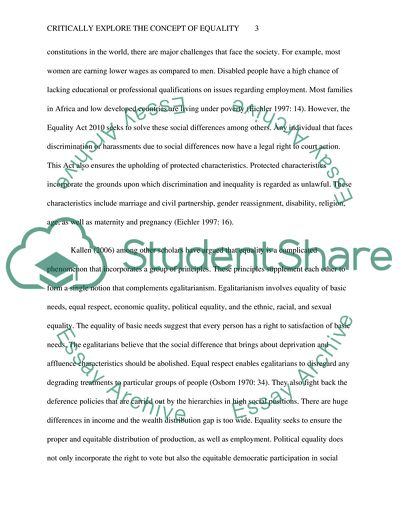Cite this document
(Exploring the Concept of Equality Essay Example | Topics and Well Written Essays - 1500 words, n.d.)
Exploring the Concept of Equality Essay Example | Topics and Well Written Essays - 1500 words. https://studentshare.org/social-science/1879387-critically-explore-the-concept-of-equality
Exploring the Concept of Equality Essay Example | Topics and Well Written Essays - 1500 words. https://studentshare.org/social-science/1879387-critically-explore-the-concept-of-equality
(Exploring the Concept of Equality Essay Example | Topics and Well Written Essays - 1500 Words)
Exploring the Concept of Equality Essay Example | Topics and Well Written Essays - 1500 Words. https://studentshare.org/social-science/1879387-critically-explore-the-concept-of-equality.
Exploring the Concept of Equality Essay Example | Topics and Well Written Essays - 1500 Words. https://studentshare.org/social-science/1879387-critically-explore-the-concept-of-equality.
“Exploring the Concept of Equality Essay Example | Topics and Well Written Essays - 1500 Words”. https://studentshare.org/social-science/1879387-critically-explore-the-concept-of-equality.


